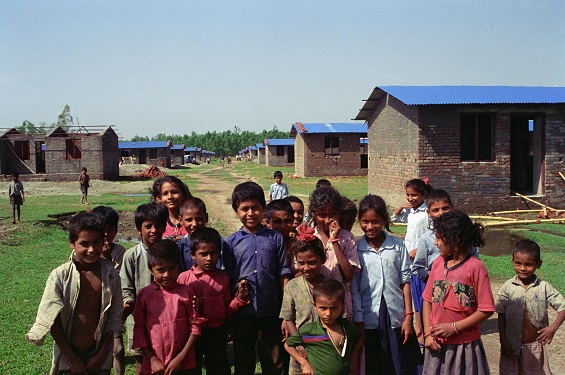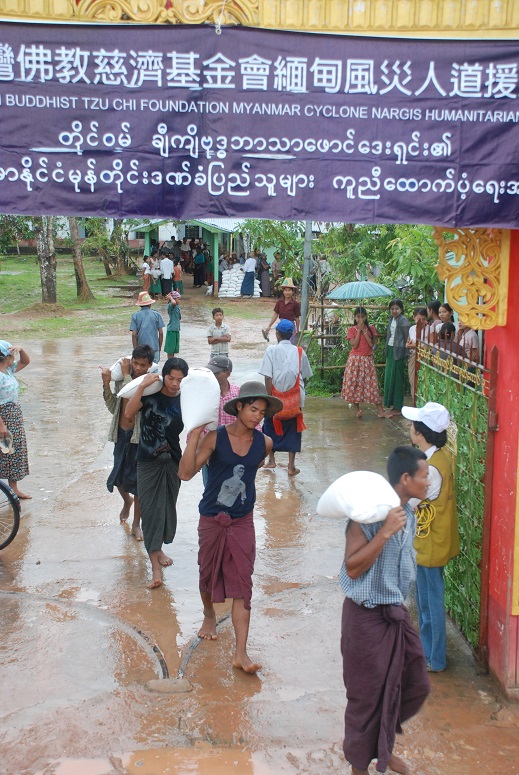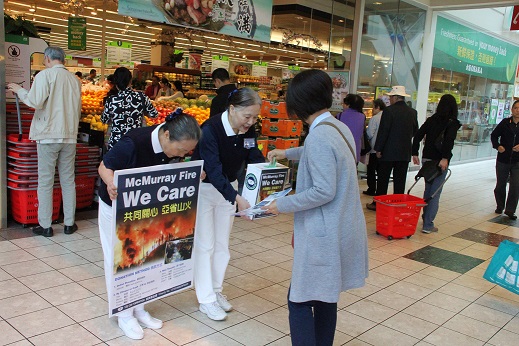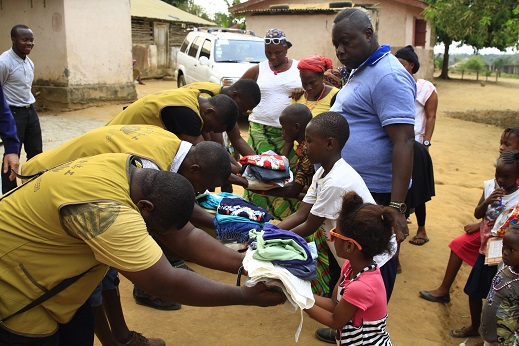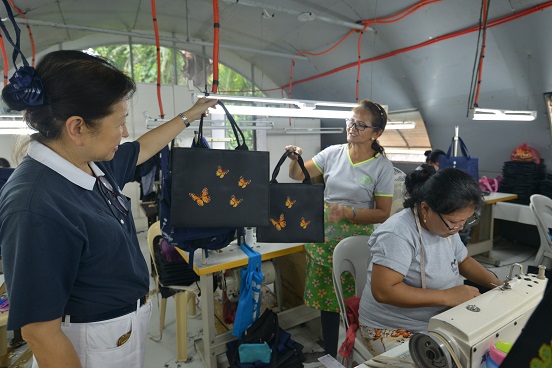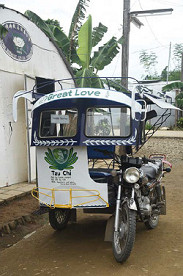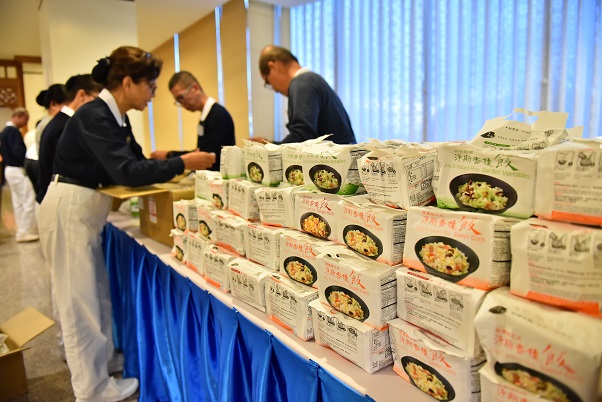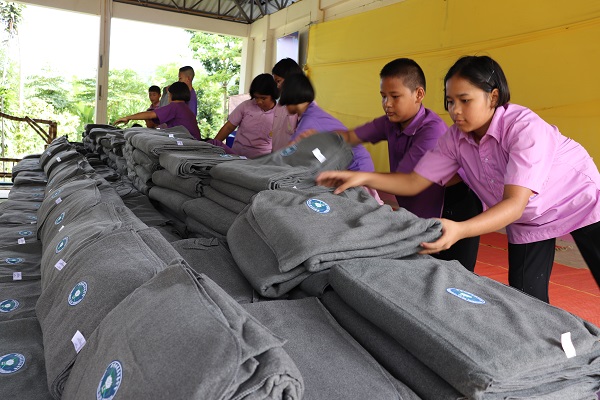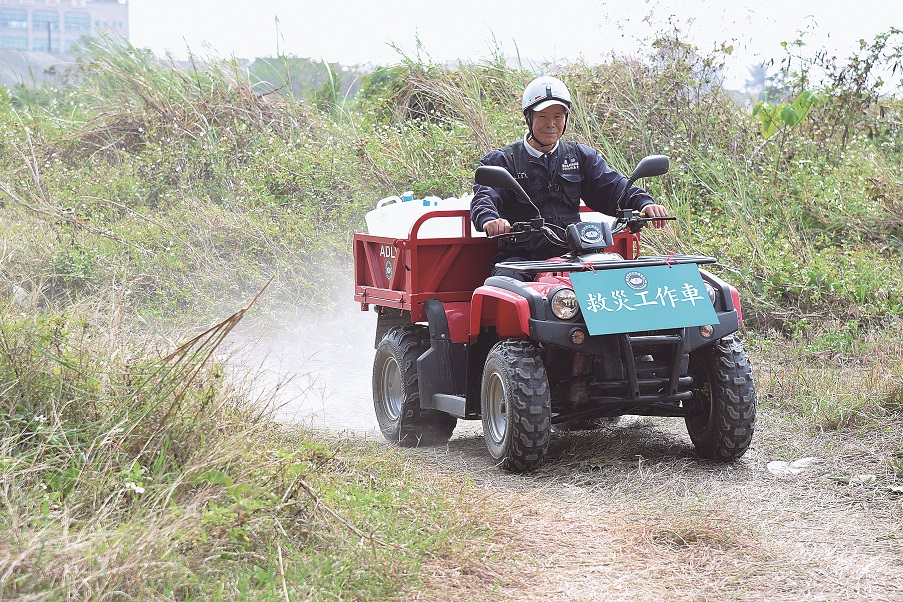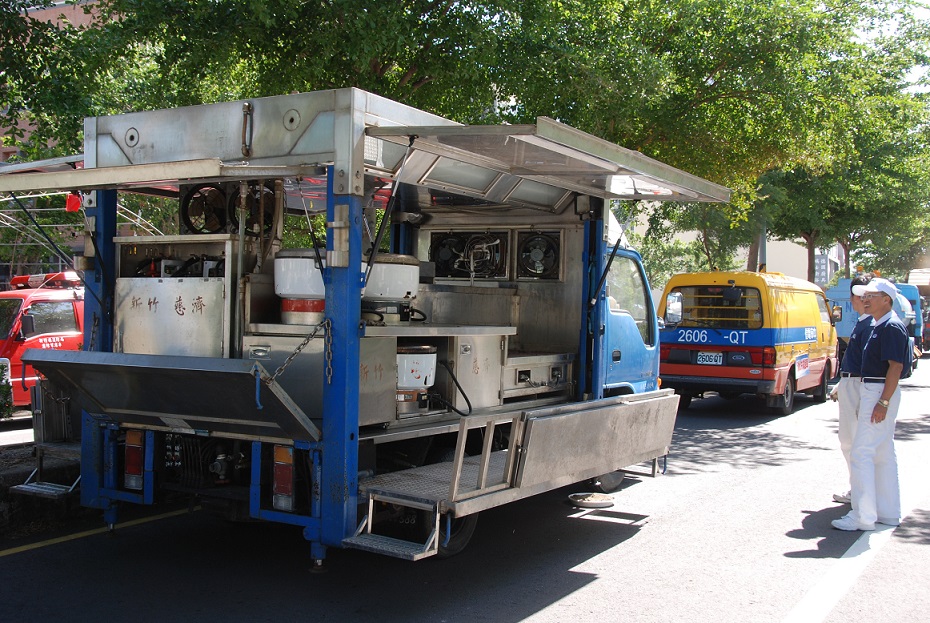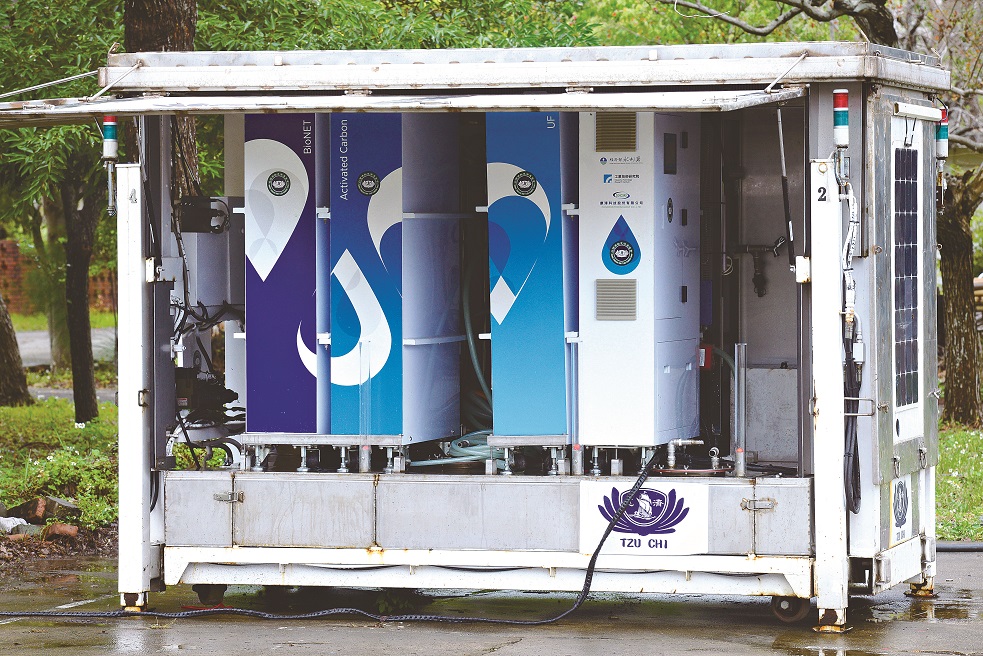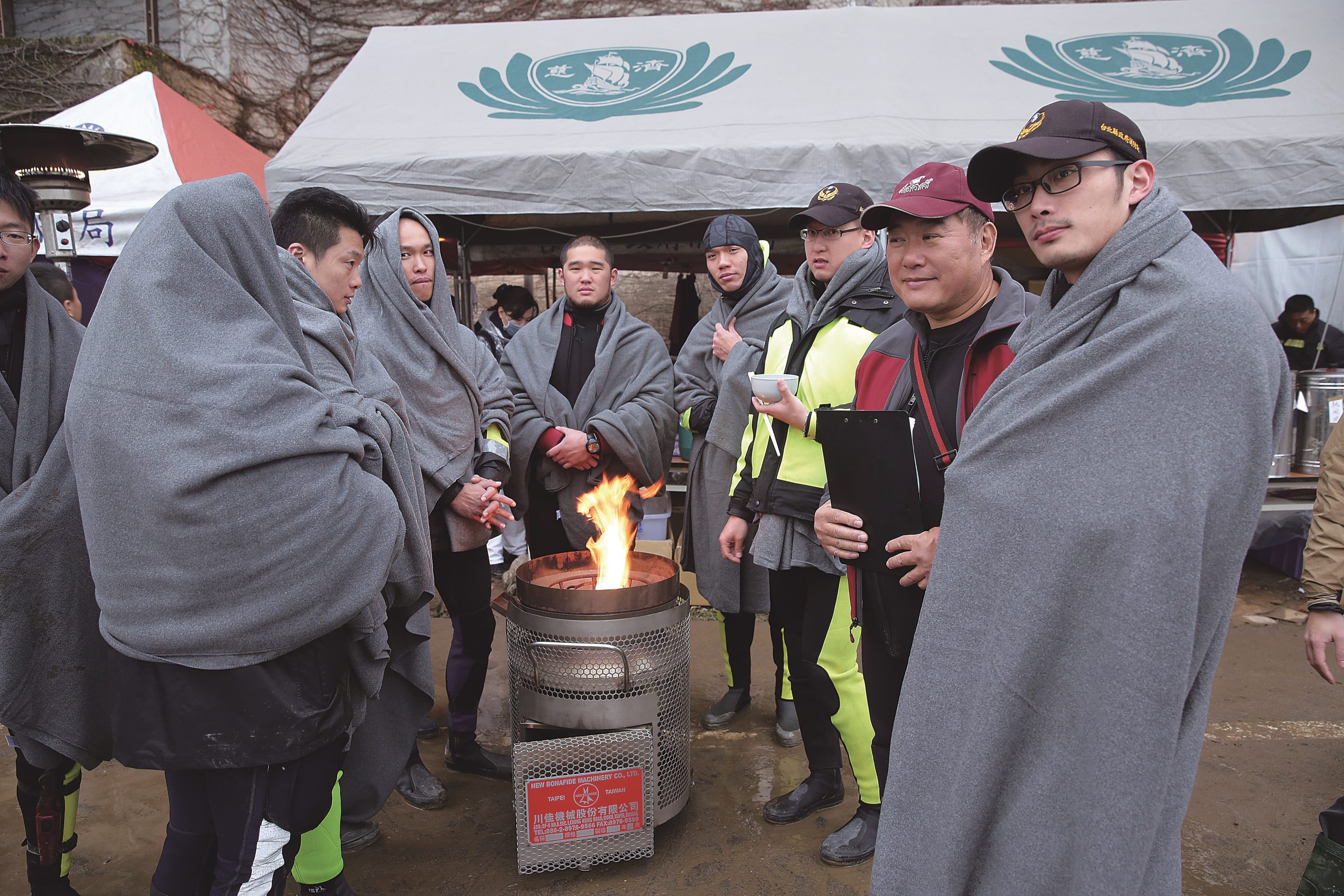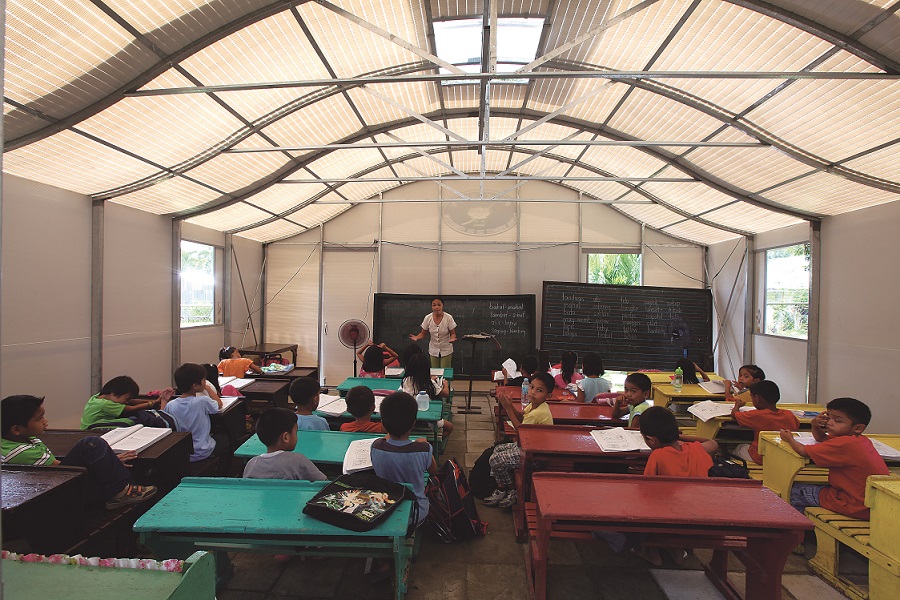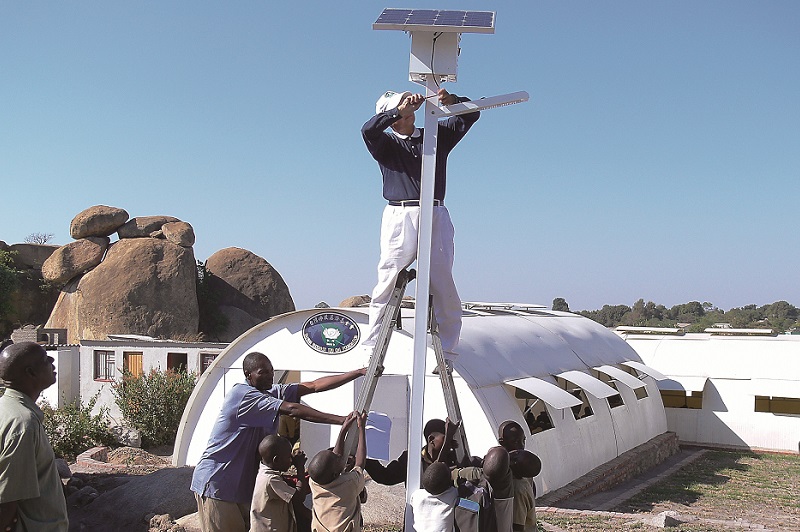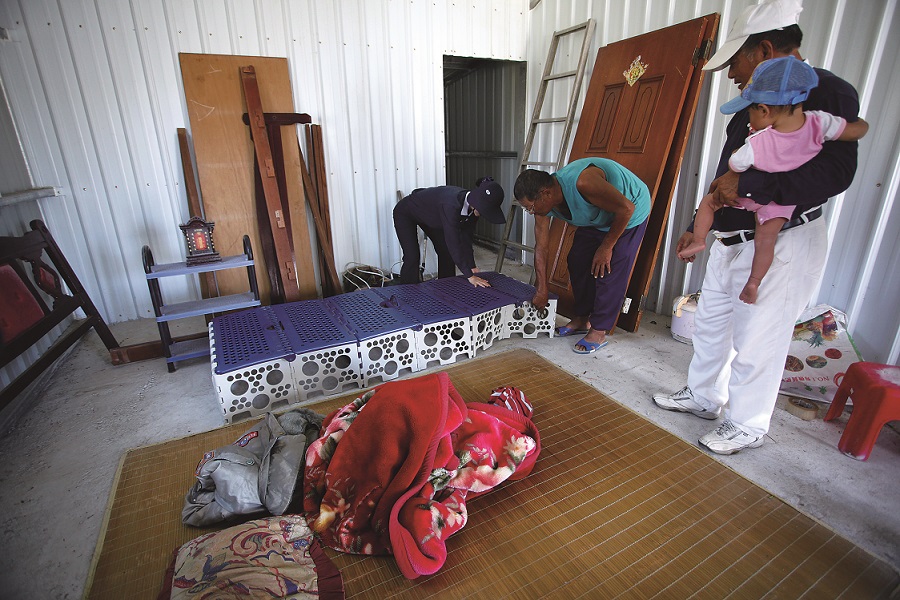Tzu Chi Q&A
A Glimpse into the Missions and Spirit of Tzu Chi
Living in this world, we are all family.
Care for one another in times of peace,
and help one another in times of disaster.
1. When did Tzu Chi start its international relief work?
In 1991, Tzu Chi took its first step in international relief when it provided aid to children orphaned in the Persian Gulf War and those affected by flooding in Bangladesh and China.
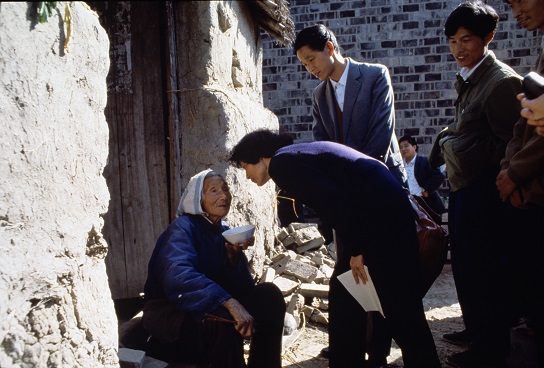
In 1991, after Eastern China was affected by massive flooding, Tzu Chi members from Taiwan arrived in Jiangsu Province to visit those affected who were poor to begin with. (Tzu Chi Foundation)
2. How many countries has Tzu Chi provided aid to?
3. What are the principles of Tzu Chi's disaster relief?
Timeliness: to deliver relief supplies in the shortest possible time.
Directness: to personally bring the supplies hand-to-hand to those affected.
Priority: to focus on the worst-hit areas and those most in need of aid.
Respect: to respect the local customs, cultural traditions, lifestyles, and religions.
Practicality: to offer aid that disaster survivors need.
4. How does Tzu Chi usually conduct its international relief projects?
|
Tzu Chi's international relief has been carried out in four ways: (1) Tzu Chi works independently to carry out disaster or poverty relief work. Examples: |
|
|
As Tzu Chi has expanded globally, most of its international relief work is now carried out in the following three ways: (2) Tzu Chi and its overseas offices work together to carry out disaster relief. Examples: |
|
|
(3) Overseas Tzu Chi offices work independently to carry out relief work in their countries of residence. Examples: |
|
|
(4) Tzu Chi works together with other international charity organizations to help people in need of aid. Relief International: Examples: Knightsbridge International: Red Cross: CARE (Cooperative for Assistance and Relief Everywhere): Healey International Relief Foundation and Caritas Freetown Foundation: |
|
5. What help does Tzu Chi offer to refugees around the world?
| Host Country | Refugees' Country of Origin | Type of Aid | |||||
| USA since 1994 |
Kosovo, Rwanda, Sudan, Pakistan, Syria, Myanmar, Thailand, Afghanistan, Yugoslavia, Haiti, Iran, Vietnam, Bosnia, Vietnam, Russia, Turkey, Bhutan |

food |
lodging |
medical care |
clothing |
daily necessities |
stationery |
| Thailand (Northern Region) 1995-1997 |
China |
permanenthousing |
farming skills |
schools & classrooms |
tuition aid |
financial aid |
|
| Thailand (Bangkok) since 2015 |
Myanmar, Pakistan, Palestine, Sri Lanka, Vietnam, Syria, Somalia, Ethiopia |
free clinics |
medical subsidies |
financial aid |
|||
| Canada since 1995 |
Iran, Mozambique, Sudan, Myanmar, Haiti, Iraq |
clothing |
cash cards |
furniture |
daily necessities |
||
| Jordan since 1998 |
Iraq, Palestine, Afghanistan, Iran, Pakistan, Chechnya, Syria |
daily necessities |

food |
clothing |
blankets |
vouchers |
financial aid |
wheelchairs |
free clinics |
medical subsidies |
tuition aid |
stationery |
|||
| Albania 1999 |
Kosovo |
medicine |
|||||
| New Zealand since 2001 |
Iraq, Pakistan, Afghanistan, Uganda, Rwanda, Ethiopia, Congo, Myanmar, Sri Lanka, Bhutan, Burundi, Eritrea, Somalia |
daily necessities |
clothing |
blankets |
home appliances |
stationery |
|
| Australia since 2003 |
Afghanistan, Iraq, Pakistan, Syria, Sri Lanka, Congo, Russia, Ukraine, Cambodia, Rwanda |

food |
daily necessities |
cash cards |
blankets |
free clinics |
stationery |
furniture |
financial aid |
medical subsidies |
tuition aid |
tutoring |
|||
| Malaysia since 2005 |
Afghanistan, Myanmar, Syria, Yemen, Iraq, Pakistan, Somalia, Sri Lanka, Palestine, Iran, India, Sudan |
free clinics |
hot meals |
clothing |
daily necessities |
education centers |
stationery |
| Turkey since 2014 |
Syria, Afghanistan |
supplies |
monetary aid |
free clinics |
tuition aid |
||
| Indonesia since 2015 |
Myanmar, Bangladesh, Afghanistan |
free clinics |
clothing |
daily necessities |
language classes |
vocational training |
|
| Germany since 2015 |
Syria, Africa, Afghanistan |
clothing |

food |
daily necessities |
second-handlaptops |
vouchers |
German classes |
| Austria since 2015 |
Middle East, Africa |
hot meals |
|||||
| Serbia since 2016 |
Syria, Afghanistan, Pakistan, Palestine, Iraq, Iran |
clothing |
hot meals |
second-handlaptops |
home appliances |
daily necessities |
stationery |
| Italy since 2016 |
North Africa |
clothing |
|||||
| Chile since 2018 |
Venezuela |
clothing |
furniture |
stationery |
|||
| Mexico since 2018 |
Honduras, El Salvador, Guatemala |
daily necessities |

food |
blankets |
portable beds |
stationery |
|
| Brazil since 2018 |
Venezuela |
daily necessities |

food |
||||
6. What does Tzu Chi do to help countries affected by the Covid-19 pandemic?
As of November 2020, Tzu Chi has provided the following relief supplies to 86 countries and regions affected by the pandemic:
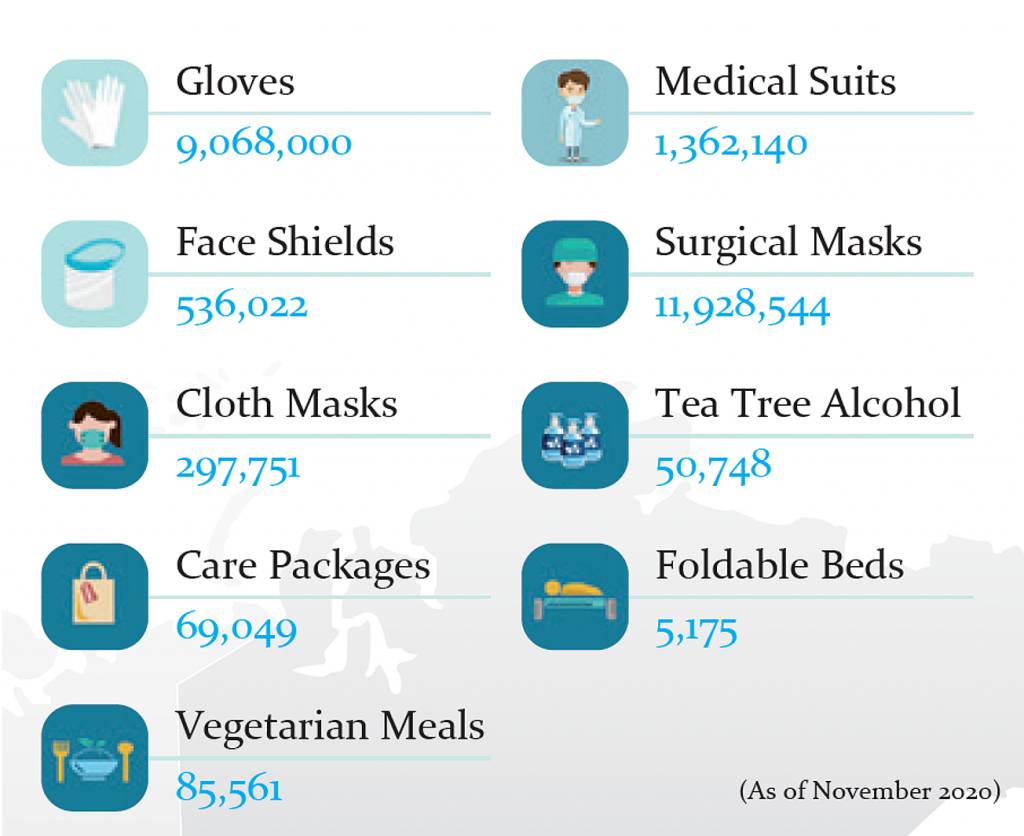
7. What is Tzu Chi's cash-for-work relief program?
When a disaster strikes, Tzu Chi will pay those affected and work hand-in-hand with them to clean up their own communities and other disaster areas. As a form of relief, this program not only brings hope to disaster survivors by allowing them to rebuild their lives with the money they earn, but also helps the affected areas recover sooner as a result of collective effort.
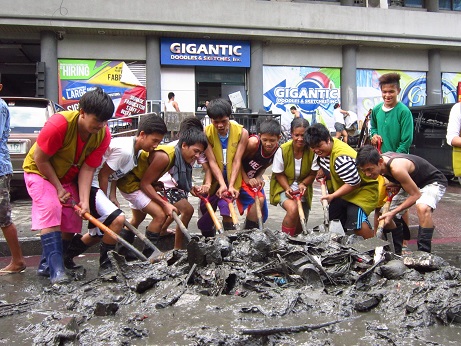
The people of Tatalon in Quezon City, Philippines take part in Tzu Chi's cash-for-work programs to clean up their own homes after torrential rain caused flooding in many parts of the country. (Lineth Brondial)
8. How does Tzu Chi help disaster survivors, especially those who are impoverished to begin with, start life anew?
|
Apart from providing emergency relief to people in the immediate aftermath of a disaster or building temporary or permanent housing for them, Tzu Chi will further look at ways to help disaster survivors living in poverty become self-reliant. For example, after constructing a village for Typhoon Yolanda survivors in Palo of Leyte Province in the Philippines, Tzu Chi volunteers have been guiding the villagers to grow vegetables, bake bread, make vegetarian meal sets, and sew handbags to make a living. The volunteers also purchase used tricycles and loan them to the villagers interest-free so they can work as tricycle taxi drivers to support their families. |
In Palo of Leyte Province in the Philippines, survivors of Typhoon Yolanda learn how to sew and make handbags to help support their families. (Li Xin-jun) |
Tzu Chi volunteers purchase used motor tricycles for Typhoon Yolanda survivors in Palo, Leyte Province, Philippines so they can make a living as tricycle taxi drivers. (Cai Juan-hua) |
9. What is TIHAA?
|
TIHAA, or Tzu Chi International Humanitarian Aid Association, was founded in 2003 by a group of entrepreneurs from various industries in Taiwan to provide logistical support to Tzu Chi's disaster relief efforts and to develop goods for use in times of disaster. For example, as disaster areas often lack electricity, TIHAA has worked with Tzu Chi's monastic practitioners to develop instant rice that can be prepared just by adding cold water. It has also developed technologies to process recycled plastic bottles into fiber, which is then made into blankets and clothing to be given out to the needy and disaster survivors. |
Tzu Chi’s instant rice comes in many flavors and is a convenience food for Tzu Chi volunteers during their relief missions. (Wu Bi-hua) |
These thermal blankets to be given out to students in need at a school in Thailand are made from recycled PET bottles. (Kang Ya-feng) |
10. What devices has Tzu Chi designed or innovated for the sake of its disaster relief efforts?
To carry out relief timely and effectively in times of crisis or disaster, Tzu Chi has innovated several devices with the help of Taiwan's industrial technology experts as well as Tzu Chi volunteers and staff:
1. All-terrain vehicle
|
2. Mobile kitchen
|
3. Mobile water purification system
|
4. Gasifier stove and biomass fuel
|
5. Temporary housing and classroom
|
6. Solar street light
|
7. Portable bed
|
Contact Us | Plan a Visit | Donate
8 Lide Road, Beitou 11259, Taipei, Taiwan
886-2-2898-9999
005741@daaitv.com
©Tzu Chi Culture and Communication Foundation
All rights reserved.

